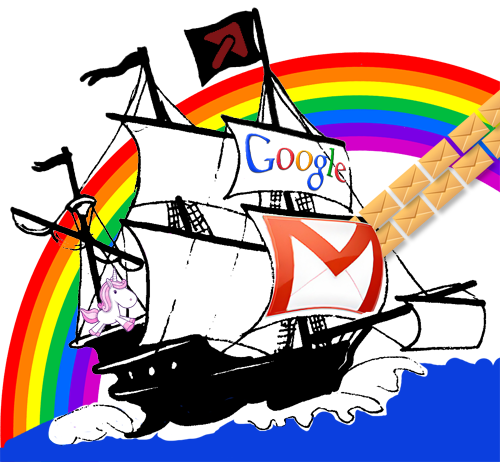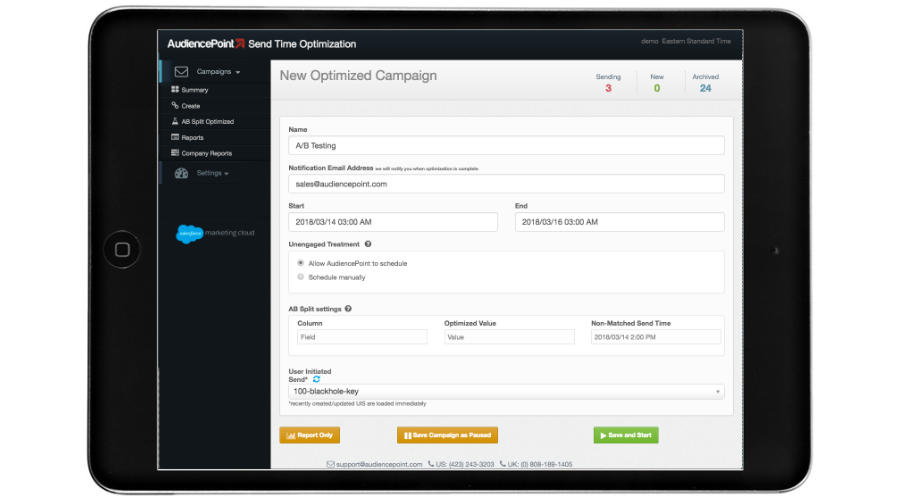AudiencePoint is thrilled to announce our new integration with Klaviyo! AudiencePoint is looking for partners to pilot our...
What Is GDPR in Europe and CCPA in California?
Navigating GDPR, CCPA, Apple MPP is essential in today’s privacy-first environment. GDPR in Europe and CCPA in California are groundbreaking data privacy regulations that set the gold standard for consumer data protection in their respective jurisdictions. The General Data Protection Regulation (GDPR) governs the handling of personal data within the European Union, while the California Consumer Privacy Act (CCPA) provides comprehensive California data protection rules for residents of California. Both laws are critical for enterprise email marketers, as compliance is not only a legal requirement but also foundational to brand trust and inbox performance in today’s privacy-driven marketplace. In addition, the rise of AI in Email Marketing makes compliance even more important, as automated personalization and data-driven insights must align with these regulations to ensure responsible and effective marketing practices.
What is the Difference Between GDPR and CCPA? Understanding the Scope of General Data Protection Regulation in the EU
The GDPR is a sweeping EU privacy law that came into force in May 2018, regulating how organizations collect, process, and store personal data of EU residents. The data protection regulation GDPR applies to all organizations, including e-commerce companies and businesses operating outside the EU, if they collect or process data of individuals in any European Union member state, regardless of the company’s location. Its scope extends globally—if your enterprise email marketing touches any EU citizens, regardless of where you are based, you are required to comply. GDPR’s key mandates include obtaining clear and affirmative consent, offering individuals control over their data, and ensuring strict protection standards. Implied consent is not sufficient under GDPR; organizations must obtain explicit, affirmative consent before collecting or processing data.
What sets GDPR apart is its broad definition of personal data, covering any information relating to an identifiable natural person, and its requirement for a legal basis to process data, such as consent or contractual necessity. GDPR is a comprehensive data privacy law that sets the standard for protecting individual’s personal data and informing users about how their data is processed. Organizations must inform users about the data processed, the purposes for processing, and their rights as data subjects, including the right to withdraw consent, access, erasure, and data portability. These data subject rights are enforced by data controllers in each European Union member state. GDPR applies to both private and public sector organizations and has influenced similar legal frameworks globally across the European Union and beyond.
Violations can result in penalties of up to 4% of a company’s global annual revenue or 20 million euros, whichever is higher.
Definition and Scope of CCPA (California Consumer Privacy Act) in California
The California Consumer Privacy Act (CCPA) is the primary California privacy law, also known as the consumer privacy act ccpa, and establishes comprehensive rights for consumers regarding their personal information. The CCPA applies to for-profit businesses and for-profit entities that collect personal information from California residents, regardless of the company’s location, if they meet the following criteria related to annual revenue, the amount of consumer data collected, or data monetization. Specifically, the CCPA apply to businesses that collect, process, or sell consumer data—including browsing history and other personal information—and that meet certain thresholds.
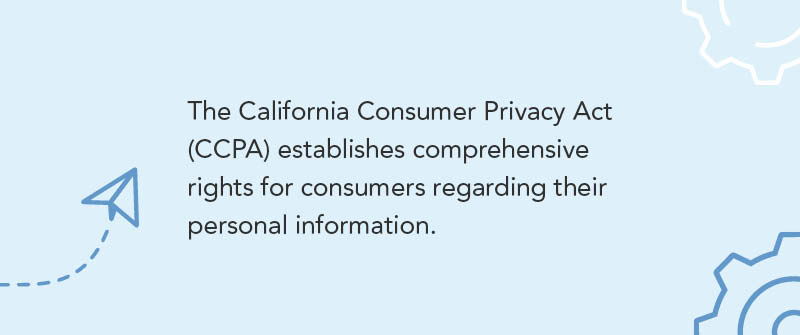
CCPA compliance is required for businesses collecting data or collecting personal information from California residents. The law requires businesses to disclose what data is collected, how it is used, and to inform users about data disclosed to third parties. It provides specific rights to consumers in the event of data breaches or a data breach, and imposes higher penalties for intentional violation, especially when minors are involved. The CCPA excludes certain types of medical information covered by other laws, such as HIPAA, and applies to individuals present in California except for a temporary or transitory purpose.
While conceptually inspired by GDPR, its requirements are tailored to the U.S. legal and digital marketing landscape. CCPA may apply to any for-profit business—even outside California—that collects or processes personal data from California residents and meets certain thresholds for annual revenue, data volume, or data monetization. It allows Californians to know what data is collected, opt out of the sale of their data, and demand deletion, putting strict obligations on the data-sharing and transparency practices of enterprise marketers.
Who These Regulations Apply To: Focus on Enterprise-Level Email Marketers
Both CCPA and GDPR impact enterprise email marketers in profound ways. Any organization conducting large-scale email campaigns targeting customers in the EU or California must align its marketing data practices with these laws. Understanding the key differences in CCPA vs GDPR is essential for businesses operating in multiple jurisdictions. Both the CCPA and GDPR are legal frameworks designed to protect data and privacy rights by putting control over personal data in the hands of consumers. For global marketing teams, this means businesses operating internationally must adapt to these legal frameworks to ensure compliance. This includes modifying consent forms, updating privacy notices, and investing in compliance infrastructure as a priority—not an afterthought. Ignoring compliance can harm not just legal standing, but also deliverability rates, sender reputation, and, ultimately, ROI on marketing efforts.
Why These Major Data Privacy Laws Matter for Global Marketing Teams
The world’s digital economy is built on trust and data-driven personalization. As privacy expectations rise, GDPR and CCPA are forcing a fundamental shift in how marketing teams collect, store, and use data. Marketing teams must work closely with the data controller to ensure that data subject rights—such as the right to be forgotten and explicit consent—are respected and fulfilled under both GDPR and CCPA, empowering users and meeting compliance requirements. Marketers who adapt fastest will not only mitigate risks but also gain a distinct competitive edge, unlocking more accurate segmentation, maximizing deliverability, and strengthening customer loyalty. AudiencePoint is purpose-built to facilitate this transition—ensuring that your email marketing strategies are compliant, future-proof, and poised to outperform in every jurisdiction.
What Is the Difference Between CCPA and GDPR?
When considering ccpa vs gdpr, it’s important to understand how these two pivotal data privacy laws shape the way enterprise email marketers must approach data collection, processing, and engagement, but they differ significantly in definitions, compliance mechanics, and their effect on your email strategies.
One of the key differences is the legal basis required for data processing: GDPR mandates that organizations establish a clear legal basis—such as consent, contract, or legitimate interest—before processing personal data, while CCPA adopts a more flexible approach, focusing on consumer rights to opt out rather than requiring a specific legal basis.
While both regulations aim to safeguard personal data and empower individuals with greater control, GDPR offers broader, more prescriptive compliance requirements, whereas CCPA provides consumers with more opt-out-centric rights, particularly around the sale of personal information. These differences profoundly impact your list segmentation approaches, subscriber onboarding, and overall campaign design.
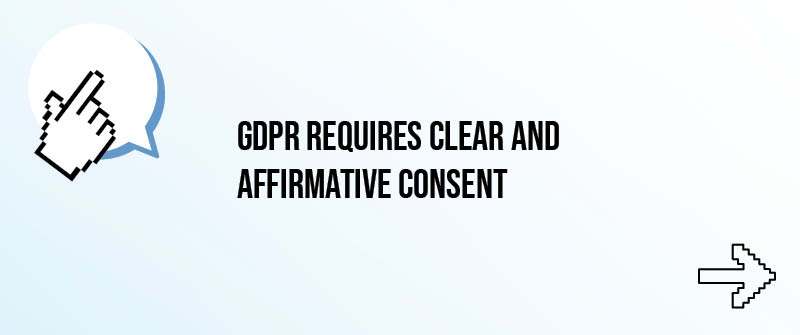
Differences Between CCPA and GDPR
The GDPR (General Data Protection Regulation) is an EU-wide regulation that sets stringent rules for collecting, storing, and processing personal data, regardless of where your business is based, as long as you handle data from EU residents. Under GDPR, organizations must act as a data controller and are responsible for upholding data subject rights, including the right to withdraw consent at any time. GDPR requires clear and affirmative consent—not just implied consent—before you collect data or process data relating to an individual’s personal data. This includes any information relating to an identifiable natural person, whether the data can directly or indirectly identify someone. GDPR also requires organizations to disclose both the collected data and any data disclosed to third parties. Parental consent is required for collecting personal information from minors under the age of 16 (or 13, depending on the country). Both GDPR and CCPA are about putting control over personal data in the hands of consumers.
CCPA (California Consumer Privacy Act), on the other hand, applies to for-profit entities that do business in California and meet certain thresholds. CCPA focuses on granting consumers the right to know, delete, and opt out of the sale of their personal information, but it relies more on the ability to opt out rather than requiring explicit consent up front. CCPA also requires organizations to disclose what data is collected and data disclosed to third parties. The CCPA provides a private right of action for consumers in the event of a data breach, with higher penalties for intentional violations. Parental consent is also required for collecting personal information from minors under 13. The CPRA (California Privacy Rights Act), an update to CCPA, introduces additional rights for consumers, including the right to opt out of automated decision making.
For enterprise email marketers, these differences translate into practical impacts: Under GDPR, you must secure explicit, clear and affirmative consent from EU users before sending marketing emails, maintain granular preference management, and respond rigorously to data subject access requests. Under CCPA, Californians have the right to request disclosure, deletion, and opt-out of data sale, but CCPA does not mandate opt-in for most data processing or email marketing. Additionally, GDPR’s definition of personal data is broader—including online identifiers and behavioral data—while CCPA’s scope is more narrowly outlined but still robust. Both laws emphasize compliance when collecting data, collecting personal information, and ensuring transparency about how collected data is used, processed, and disclosed, especially in the context of data breaches and data security.
Similarities Between GDPR and CCPA
Despite their differences, both the CCPA and GDPR serve a unifying purpose: holding organizations accountable and providing users with transparency and rights over their data. Both CCPA and GDPR are designed to protect personal data and data and privacy rights by putting control in the hands of users. Both laws require organizations to inform users about data collection and usage, disclose how data is used, and honor requests for access or deletion. For marketers, this means ensuring visibility into data flows, honoring unsubscribe and deletion requests, and embedding privacy-by-design into all audience engagement efforts.
Practical Examples for Email Marketers
GDPR mandates double opt-in for EU users, robust consent records, and quick fulfillment of data requests (within 30 days). CCPA compels businesses to add a “Do Not Sell My Personal Information” link on their homepage and honor such requests—all while ensuring the process for data disclosure is frictionless. Additionally, businesses must provide consumers with access to collected data and data disclosed to third parties, and must honor requests to request deletion of collected personal information. For both regulations, list hygiene, segmentation based on jurisdiction, and transparent privacy notices are non-negotiable. Tools like AudiencePoint empower marketing teams to navigate these requirements seamlessly, offering sophisticated segmentation, preference management, and compliance workflows to maintain deliverability and engagement rates while respecting all applicable laws.
Impact on Email Data Collection, Segmentation, and Engagement Strategies
Understanding the differences between GDPR and CCPA is not just a box-ticking exercise—it is essential for optimizing deliverability, avoiding fines, and strengthening consumer trust. With GDPR requiring more rigorous consent processes and CCPA emphasizing consumer opt-outs, your global campaign strategies must adapt dynamically. AudiencePoint equips you with granular audience insights and actionable compliance tools, so your segmentation, targeting, and engagement remain best-in-class—without ever putting your brand at risk. AudiencePoint’s tools help ensure both CCPA compliance and GDPR compliance by managing data processed in accordance with legal requirements, supporting responsible data handling and regulatory adherence. Now is the time to elevate your privacy game and future-proof your email marketing stack against ever-evolving regulations.
How Have These Laws Evolved? (GDPR vs. CCPA vs. CPRA vs. HIPAA)
The landscape of data privacy regulations has rapidly transformed in recent years, requiring enterprise email marketers to continually update their compliance practices. The evolution of legal frameworks in data privacy law includes not only broad regulations like CCPA and GDPR, but also sector-specific rules such as those governing medical information under HIPAA. Notably, the CCPA has evolved into the CPRA, bringing stricter requirements and new consumer rights, while GDPR continues to influence privacy laws far beyond the EU. Marketers must also recognize how these laws differ fundamentally from sector-specific regulations like HIPAA, as each mandates unique approaches to consent, data processing, and segmentation strategies. For enterprise email marketers who handle volumes of international or healthcare data, understanding this regulatory evolution is non-negotiable for both risk management and superior audience engagement.
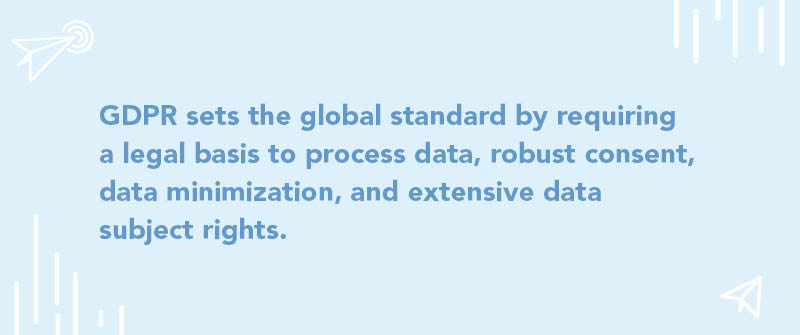
What Is CCPA Now Called?
The CCPA (California Consumer Privacy Act) was the groundbreaking state-level privacy law enacted in California in 2018, but it has since been updated and expanded by the California Privacy Rights Act (CPRA), which took effect in 2023. The CPRA builds on CCPA’s foundation by establishing even stricter protections for consumers, including new rights to correction and the creation of the California Privacy Protection Agency—a dedicated enforcement body. For enterprise email marketers, this means a higher bar for compliance and even greater scrutiny on data collection, user preferences, and granular opt-out mechanisms.
The CPRA adds scope to protect sensitive personal information and clarifies definitions of consent, opt-out, and profiling, echoing certain nuances found in the GDPR. It also introduces rights related to automated decision making, allowing consumers to opt out of certain automated processes, and requires businesses to maintain records of collected data as part of their CCPA compliance obligations. Marketers must adapt their data strategies accordingly, ensuring every step of their campaign— from acquisition to engagement—meets these stricter regulations. Legacy compliance systems built around CCPA requirements alone may leave companies exposed unless promptly updated to address CPRA obligations.
GDPR vs. CCPA vs. HIPAA: How Do These Regulations Differ?
The data protection regulation GDPR and the Consumer Privacy Act CCPA are the primary laws compared here, each defining the role of the data controller and the rights of data subjects differently. While GDPR and CPRA/CCPA are often compared, HIPAA (the Health Insurance Portability and Accountability Act) stands apart as a U.S. federal law specifically targeting medical information. GDPR sets the global standard by requiring a legal basis to process data, robust consent, data minimization, and extensive data subject rights across all types of consumer data and collected data for EU residents. The data processed under GDPR must be managed in accordance with strict compliance requirements, and the data controller is ultimately responsible for upholding these standards. CCPA/CPRA, also known as the Consumer Privacy Act CCPA, is tailored to Californian consumers but has a broad impact due to California’s market size—its rights center on disclosure, access, and the ability to opt out of data sale, focusing on transparency around collected data and consumer data. Unlike GDPR, CCPA is more flexible regarding the legal basis for processing personal information. HIPAA, conversely, governs only Protected Health Information (PHI) and applies strictly to health plans, providers, and their partners, while GDPR and CCPA cover a broader range of consumer data and collected data.
For enterprise email marketers, this means your compliance checklist must be multifaceted: GDPR compliance for EU recipients, CPRA for California, and HIPAA if handling healthcare data within campaigns or automation systems. “One size fits all” doesn’t suffice; segmentation, preference management, and data subject request workflows must be tailored to the regulatory profile of your audience.
Key Compliance Checkpoints for Enterprise Marketers
To successfully navigate the updated compliance landscape, here are strategic priorities for enterprise marketers:
- Data Mapping & Segmentation: Identify exactly which contacts are subject to GDPR, CPRA, or HIPAA and ensure tailored processing for each cohort.
- Consent & Preference Management: Deploy granular consent collection for EU and California audiences and strict preference portals for users to exercise their rights under all three regimes.
- Audit Trails & Documentation: Data controllers must maintain robust records of all data processed, including data subject rights requests, consent logs, and privacy impact assessments—a necessity for regulatory scrutiny and demonstrating accountability.
- Partner Solutions: Leverage platforms like AudiencePoint, which fortify your compliance program by anonymizing and securing user data, ensuring you always adhere to the most current legal standards across markets.
As privacy laws continue to advance and converge, marketers who proactively update their strategies—and utilize trusted partners—will outpace competitors constrained by outdated compliance methods. AudiencePoint offers the agility, data intelligence, and best-in-class compliance features to confidently navigate this evolving environment.
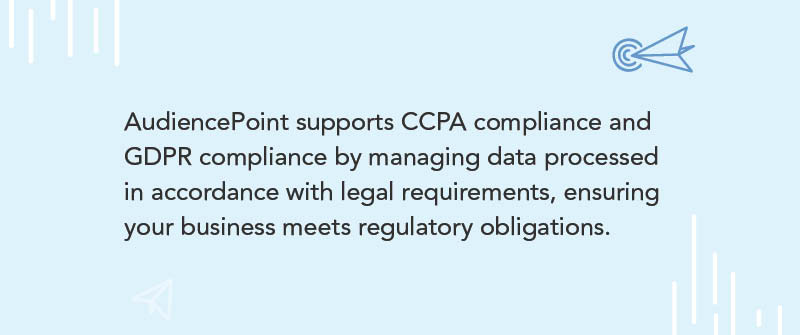
Why Enterprise Email Marketers Must Prioritize Data Privacy Compliance
For today’s enterprise email marketers and executives, strict adherence to data privacy best practices is no longer optional—it’s a foundational element of sustainable marketing success. Regulations like GDPR, CCPA, and their evolving counterparts have dramatically increased the consequences of poor compliance, with fines reaching into the millions, severe deliverability issues, and the potential for irreversible loss of consumer trust. Non-compliance doesn’t just jeopardize your bottom line; it puts your sender reputation, brand equity, and entire email program at risk. Failure to comply can also result in data breaches, which may trigger a private right of action for affected individuals, exposing organizations to lawsuits and additional penalties. Both GDPR and CCPA are about putting control over personal data in the hands of consumers. As global scrutiny intensifies, marketing teams must proactively elevate their internal standards to remain above regulatory and consumer expectations.
Fortunately, compliance can also be a catalyst for superior engagement and competitive advantage. Advanced compliance strategies go beyond basic consent and opt-out protocols. Successful brands leverage robust opt-in management systems, prioritize transparent data usage policies, and deploy granular user preference centers to empower their subscribers. By building trust and providing clear value, marketers make privacy a selling point—not a stumbling block. This not only keeps your practices within regulatory bounds but also drives higher quality data, increases open and engagement rates, and enhances customer loyalty.
How AudiencePoint Enables Superior Targeting and Privacy Protection
Bridging the gap between compliance and growth, AudiencePoint stands out as the enterprise solution for email marketers striving to maximize impact while upholding data privacy. Our platform supports CCPA compliance and GDPR compliance by managing data processed in accordance with legal requirements, ensuring your business meets regulatory obligations. It doesn’t just help you avoid penalties; it actively improves campaign performance by enabling data-driven decision-making, powered by insights from 85 trillion tracked email events. With real-time monitoring of deliverability, inbox placement, and subscriber activity, AudiencePoint empowers brands to pinpoint engaged audiences, suppress risky addresses, and align with evolving CCPA data protection and GDPR requirements.
Integrating Compliance into Every Step of Your Email Workflow
AudiencePoint’s advanced tools automatically surface high-value segments and suggest optimal send times, all while ensuring that only active, compliant addresses are targeted. AudiencePoint helps data controllers automate the fulfillment of data subject rights and manage data processed for compliance with regulations like GDPR and CCPA. Features like engagement-based suppression and transparent preference management enable marketers to shift from reactive compliance to a proactive, value-driven strategy. By integrating privacy into every campaign, you position your brand as a leader in both regulatory rigor and customer respect—unlocking measurable gains in both targeting and deliverability.
Ready to experience a new era of compliant, high-performing email marketing? Put privacy at the center of your strategy and accelerate your results with AudiencePoint. Discover how you can turn data transparency and consent into your brand’s biggest growth lever. Book your AudiencePoint demo today and stay steps ahead of privacy laws—while vastly outperforming your competition.



